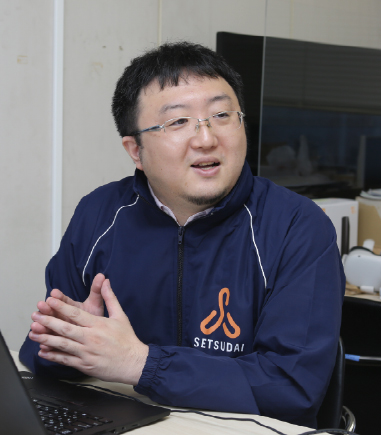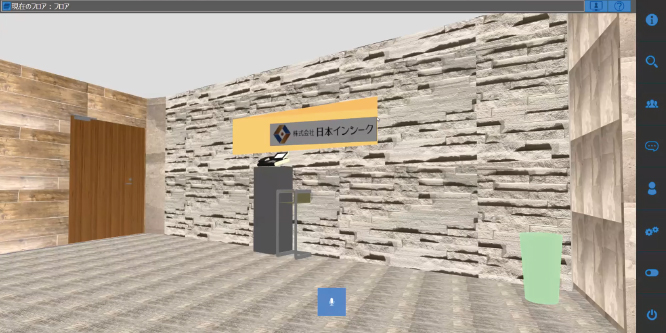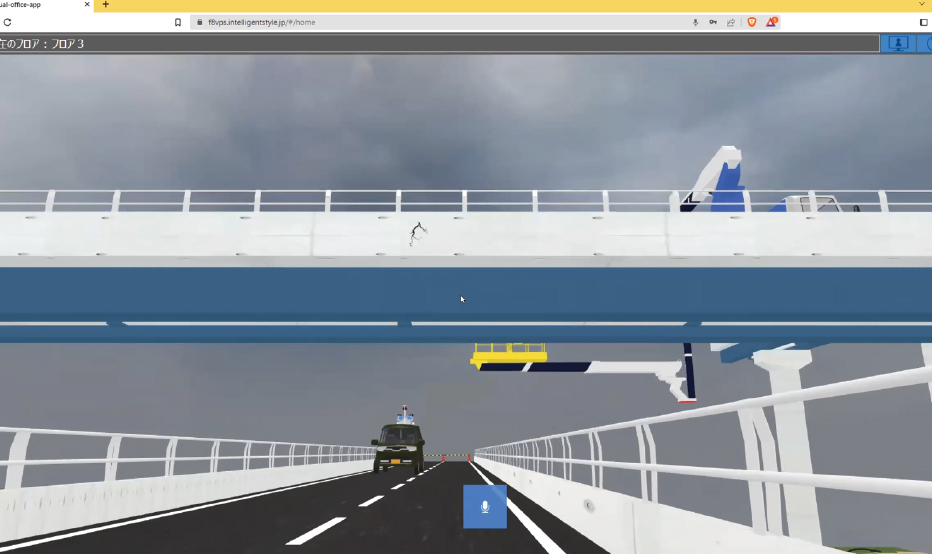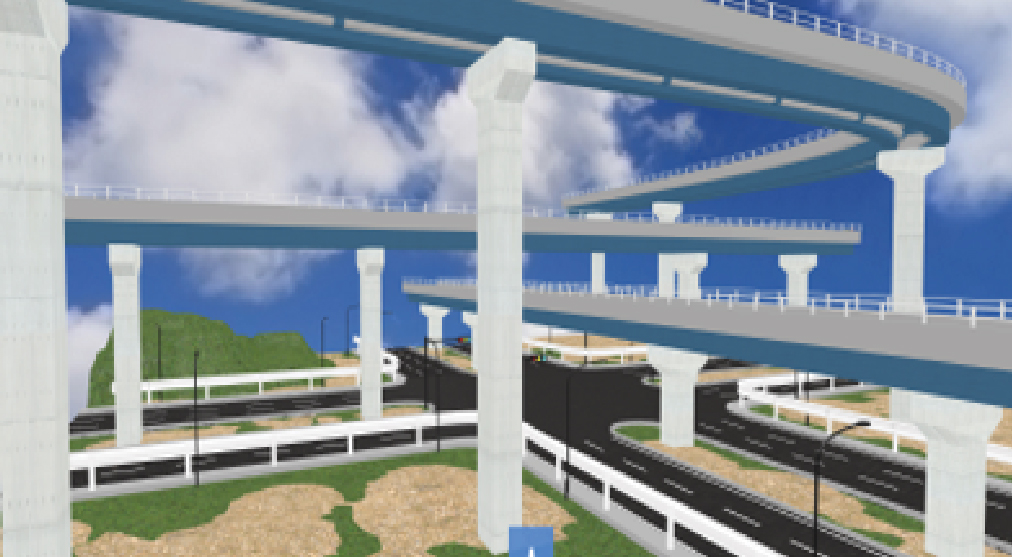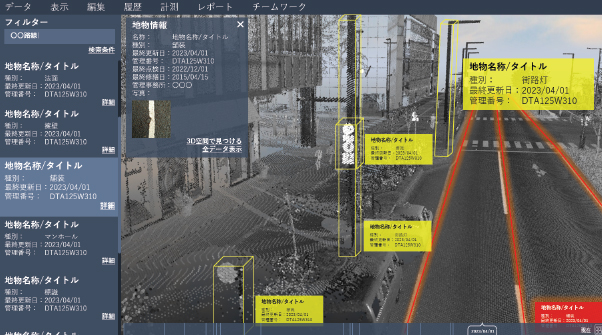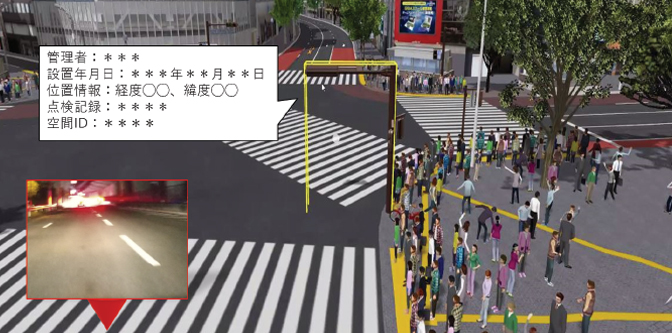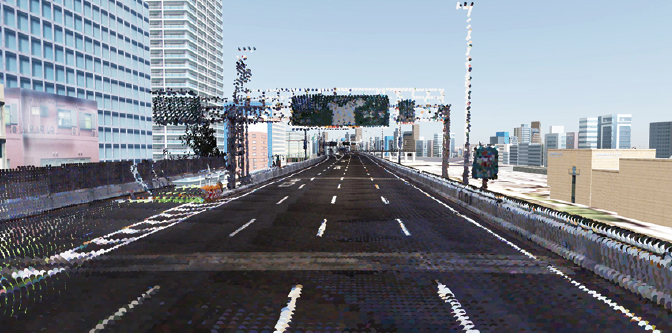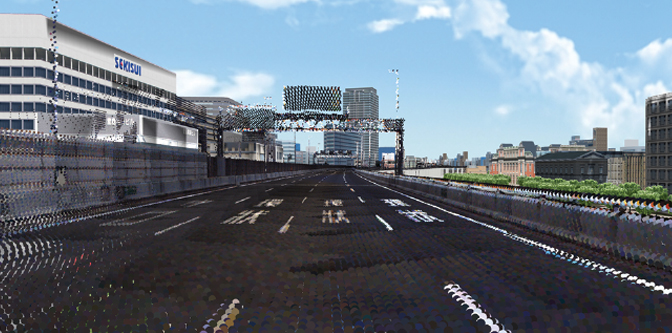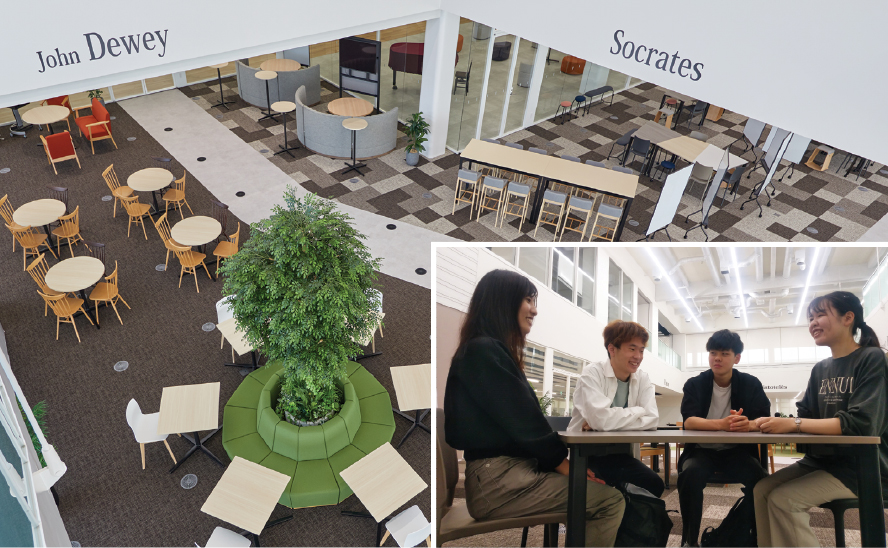|
||||||||||||||
|
|
|||||||||||||
Deploying metaverse projects for various purposes such as personnel/recruitment, digital archives, job hunting support, etc. The Metaverse project teams at the Tsukada Laboratory Seminar are working on several projects in parallel. One of them, the "Metaverse Human Resources" project team, is using the F8VPS Metaverse in cooperation with NIPPON INSIEK CO.,LTD., a construction consulting company, to solve various limitations in corporate recruitment activities. Not only does it have a "web conferencing function", which allows HR staff to give a presentation at the company information session in the Metaverse space and participants to listen to the explanation and receive materials via screen sharing, but it is also effective in creating communication opportunities for students to talk directly with management who are usually too busy to talk with, or with young employees and job offers by using avatars and the "standing conversation function". Since the "Metaverse HR" is free from time and space constraints, there would be many advantages. For example, it is possible to recruit various human resources from all over the country, and to exchange human resources with foreign countries through AI mediation even if the employees do not speak English. In addition, as a unique benefit of the Metaverse, we are also creating content that reproduces spaces that even interns cannot actually visit, such as highway bridge inspections, so that they can participate remotely and experience work simulation. The project team is considering a system that allows students to experience the real business, such as creating a 3D model of a bridge inspection vehicle that, when clicked on, plays a related video explaining the project, and making the underside of the bridge assuming a junction, etc. with the rust and cracks that are in the inspection items being reproduced, which the actual inspection being displayed when clicking on the damaged part. Students who actually use the F8VPS in their projects say that the functions of conventional web conferencing tools, which are available in 3D space as they are, and various communication functions such as chat are useful. In another project, one of the teams is trying to use AI and Metaverse to support the employment of people with disabilities, which has actually developed into collaboration with a social welfare organization in the Kansai region. Even if people have physical limitations in the real world or are not good at speaking in front of others, they can use avatars in the metaverse space to move around freely and get their work done. "Currently, students are creating spatial content for the metaverse, but if people with disabilities can create such content under contract from companies, it will be helpful from an employment support perspective. Some of them have built up self-confidence while working freely in the metaverse and have got jobs in the real world." Other metaverse business plans they have planned and presented include "Metaverse Real Estate", a collaboration project with a real estate agent that uses point cloud surveying to create a highly accurate spatial model of a property to simulate furniture placement and loading/unloading, "Metaverse Museum", which attempts to monetize digital archives (heritage, records and folklore), and "Virtual Campus", a virtual open campus created from point cloud data of Setsunan University, which allows high school students to attend mock lectures and experience campus life through a walkthrough from their home or school.
Highway maintenance management by linking point cloud data and metaverse The metaverse is used in the seminar to solve business problems and realize business ideas. Mr. Tsukada himself is participating as an extramural research cooperation member in the Infrastructure Management Research Group, which was established in 2022 primarily at Kansai University, and is working on the management of data on highways and other public structures based on the metaverse space and the verification of its usefulness. In addition to Kansai University, FORUM8, SUBARU enterprise Co., Ltd. and NIPPON INSIEK CO.,LTD. are participating in this study. NIPPON INSIEK conducts the high-precision 3D laser survey of the highways, and FORUM8 creates the metaverse space using the point cloud data obtained. Not only do they create structure models such as lighting and power poles that are associated with roads and need to be inspected to run various simulations, but they also aim to visualize attribute information and create a maintenance platform. Since SUBARU is a company which undertakes actual inspections and maintenance, it is participating in the project as a supervisor to evaluate benefits of the spatial data management. At the moment we meet regularly to exchange views, discuss topics and come up with concrete ideas. The working group in this project, in which Mr. Tsukada participates, collects point cloud data and 3D models of public structures, as well as design drawings, inspection forms, site photos, etc. generated in each process of survey, design, construction, and maintenance management. Using this data, they propose methods for managing and visualizing digital data in 3D metaverse space based on position and reference data. "Potholes and cracks in the road surface are found during daily patrols, and the inspection results and information are summarized in 2D data such as Excel. Normally, when you acquire images and data, you probably manage them in folders on your desktop in two dimensions. This research group is trying to manage and refer to this data efficiently by associating different data in 3D space." Regarding this, they will discuss what kind of functions are necessary for registering information by the end of this year, and once the specification policy is decided, FORUM8 will develop F8VPS, and it is expected that the relevant parties will start using it. In addition, with regard to the inspection of pavements and accessories in the metaverse space, they are verifying inspection methods that can be performed in the metaverse while looking at the information that is constantly coming in from the field. Specifically, the system uses AI to automatically assess damage conditions, such as where and how the road surface is cracked, from video captured by drive recorders on road patrol cars, and the results are automatically reflected in the metaverse space based on the location information.
Expectations for the WebVR platform that turns free ideas into businesses "Today's young people, who have absolutely no resistance to 3D, are not only losing the awareness that they have to be face-to-face, but rather are thinking about what they can do only online. In order to establish their free idea as a business, it is attractive that you can build your own metaverse platform and design it in detail according to your purpose with a high degree of freedom", said Mr. Tsukada, talking about the usefulness of the F8VPS as a method for practically solving social and business problems. The Tsukada Lab. seminar has a policy that the members proactively submit business plans created by students to external idea competitions, academic societies, or research groups at least once a year, both as a team and individually. They have accumulated a large number of awards every year, and it is expected that the F8VPS will be used as a tool to further support these activities. "A number of projects related to the metaverse are currently underway. The students are taking action on everything they can think of at the moment, and in the future, I would like to customize and expand the platform to complete each project." Part of this project is supported by the JST Strategic Basic Research Programs JPMJRX21I2.
|
||||||||||||||||||||
| (Up&Coming '23 Summer issue) |
|
|||||

